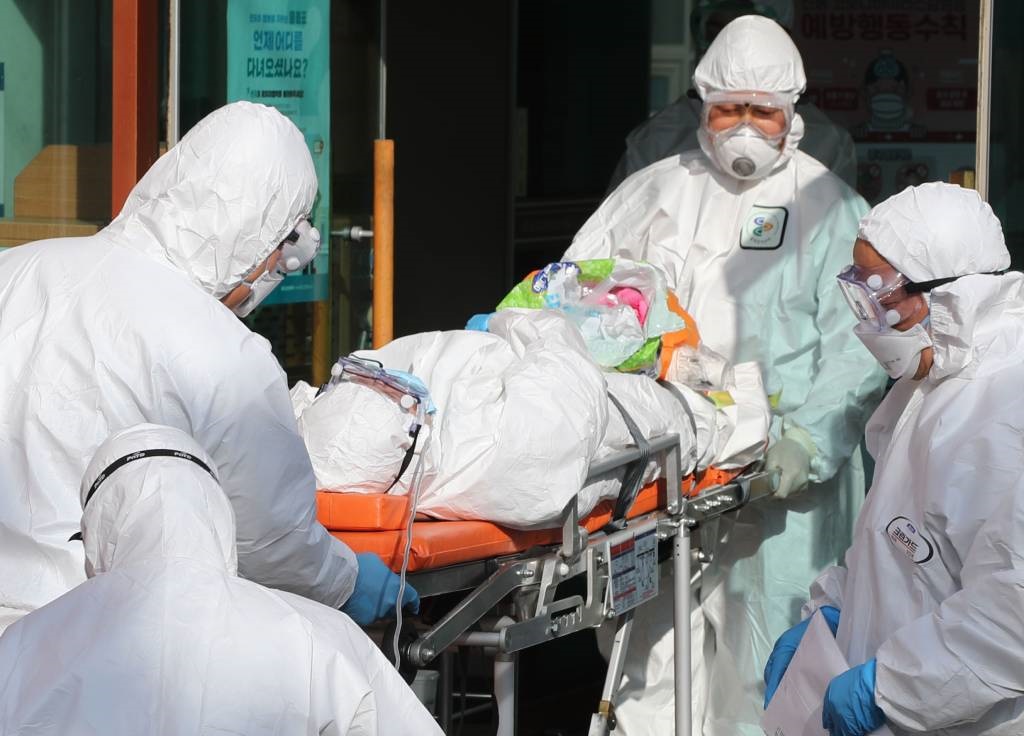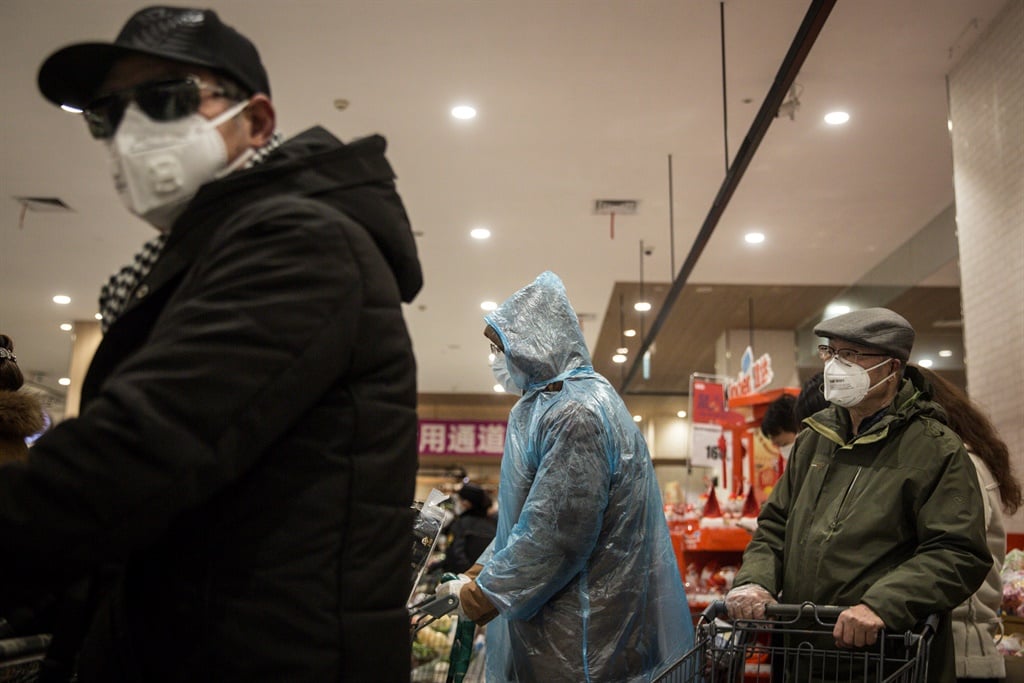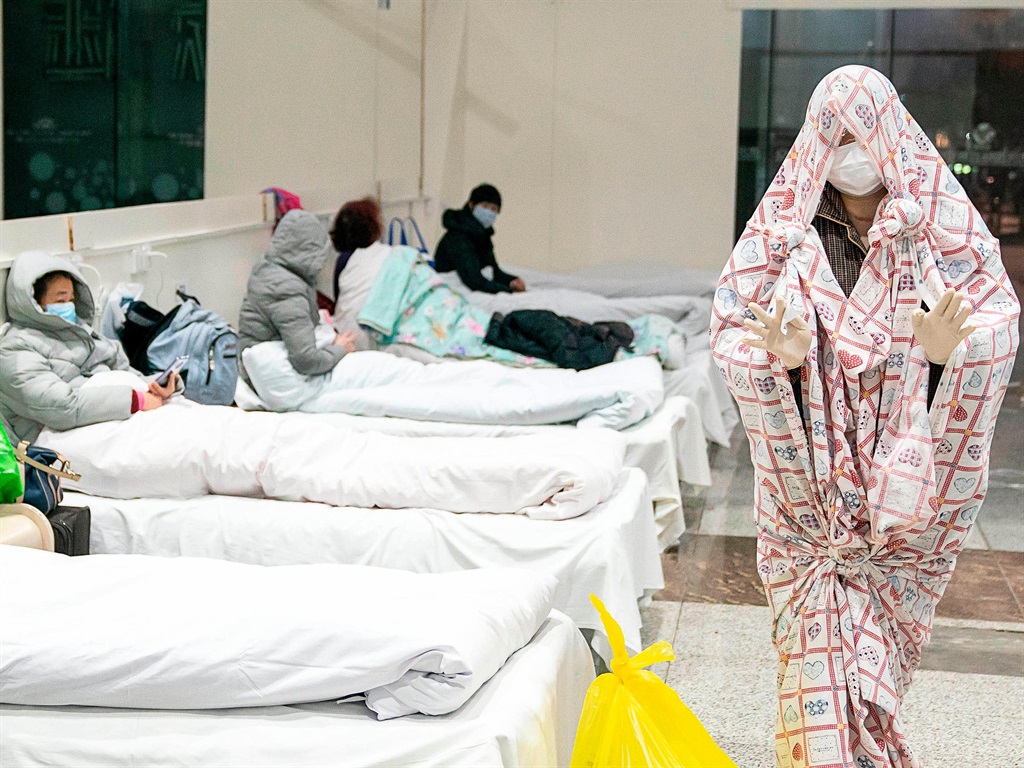The death toll from the new coronavirus in China surged to at least 2 592 as of February 23, as the World Health Organisation (WHO) warned that the window of opportunity to stem the deadly epidemic was "narrowing".
Since the new type of virus was first detected in the central Chinese city of Wuhan in December, it has infected more than 78 000 people in more than 30 countries. The vast majority of infections and deaths are in China.

Medical workers wearing protective gear transfer a suspected coronavirus patient (C) to another hospital from Daenam Hospital. (Yonhap, AFP)
The rapid advance of the virus - known as COVID-19 - has triggered fear across the globe, despite 99% of the infections reported being in mainland China.
As fear spread, scientists and researchers around the world ramped up efforts to understand the new virus and how it affects the human body.
Here is what we know about COVID-19 and what happens if you are infected.
'Varying levels of severity'
COVID-19 belongs to a family of viruses that can cause respiratory illnesses in humans ranging from the common cold to more severe diseases such as the severe acute respiratory syndrome (SARS) and the Middle East respiratory syndrome (MERS).
Thought to have been transmitted to humans from an as-yet-unidentified animal source, the new virus spreads primarily through respiratory droplets, such as those generated when an infected person coughs or sneezes. On average, it takes about five to six days for someone to show symptoms after becoming infected. However, some patients do not show any symptoms.
The virus multiplies in the respiratory tract and can cause a range of symptoms, according to Dr Maria Van Kerkhove, who heads the WHO's Health Emergencies Programme.
"You have mild cases, which look like the common cold, which have some respiratory symptoms, sore throat, runny nose, fever, all the way through pneumonia. And there can be varying levels of severity of pneumonia all the way through multi-organ failure and death," she told reporters in Geneva last week.
However, in most cases, symptoms have remained mild.
"We've seen some data on about 17 000 cases and, overall, 82% of those are mild, 15% of those are severe and 3% of those are classified as critical," said Van Kerkhove.

Residents wear protective clothes and mask as they line up to pay in the supermarket on February 12, 2020 in Wuhan, Hubei province, China. Flights, trains and public transport including buses, subway and ferry services have been closed. (Photo by Stringer/Getty Images)
Fever, cough, pneumonia
A study of 138 patients infected with the new virus in Wuhan, published in the Journal of the American Medical Association (JAMA) on February 7, showed the most common symptoms were fever, fatigue and dry cough. A third of the patients also reported muscle pain and difficulty breathing, while about 10% had atypical symptoms, including diarrhoea and nausea.
The patients, who ranged in age from 22 to 92, were admitted to the Zhongnan Hospital of Wuhan University between January 1 and 28. "The median age of patients is between 49 and 56 years," JAMA said. "Cases in children have been rare."
While most cases appeared to be mild, all the patients developed pneumonia, according to JAMA.
About a third subsequently developed severe breathing difficulties, requiring treatment in the intensive care unit. The critically ill were older and had other underlying conditions such as diabetes and hypertension.
Six out of the 138 patients died - a figure amounting to a 4.3% death rate, which is higher than estimates from other parts of China. Less than 2% of the total number of infected people have died from the virus so far but that figure could change.
Meanwhile, a study published on January 24 in The Lancet medical journal found what it called a "cytokine storm" in infected patients who were severely ill. A cytokine storm is a severe immune reaction in which the body produces immune cells and proteins that can destroy other organs.
Some experts say this could explain deaths in younger patients. Statistics from China show some people in their 30s, 40s and 50s, who were not known to have had prior medical issues, have also died from the disease.

An exhibition hall has been converted into a hospital in Wuhan, February 5, 2020. (Getty Images)
A timeline of how the disease progresses
According to JAMA, on average, people became short of breath within five days of the onset of their symptoms. Severe breathing trouble was observed in about eight days.
The study did not give a timeline for when the deaths occurred.
However, an earlier study published in the Journal of Medical Virology on January 29 said that, on average, people who died did so within 14 days of the onset of the disease.
The New England Journal of Medicine, in a study published on January 31, also offered a look at how the coronavirus infection affects the body over time.
The study examined the medical data of a 35-year-old man, the first case of infection in the United States. The first symptom was a dry cough, followed by a fever.
On the third day of illness, he reported nausea and vomiting followed by diarrhoea and abdominal discomfort on the sixth day. By the ninth day, he had developed pneumonia and reported difficulty breathing.
By the twelfth day, his condition had improved and his fever was subsiding. He developed a runny nose, however. On day 14, he was asymptomatic except for a mild cough. He was still hospitalised at the time the study was published.




 Publications
Publications
 Partners
Partners















